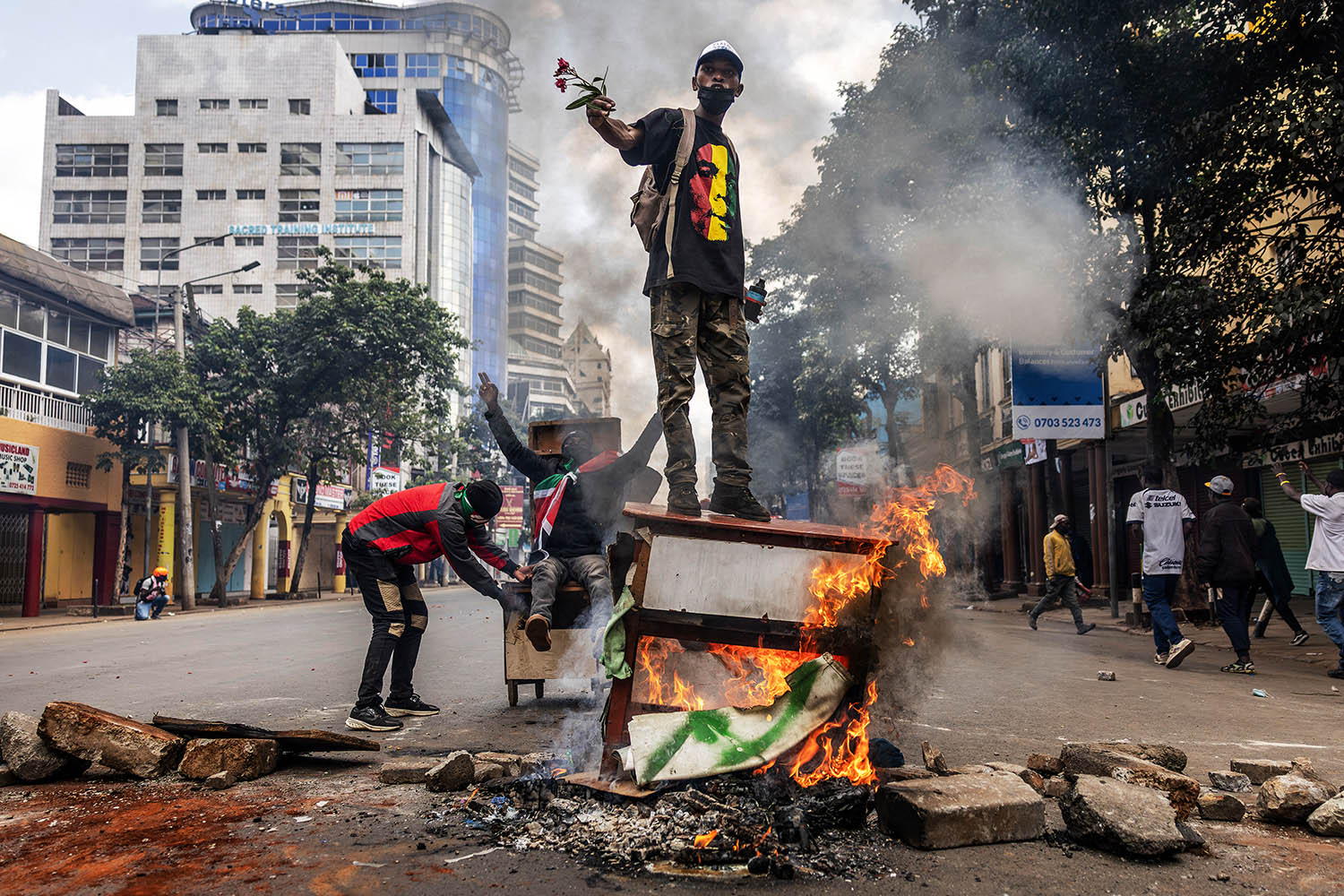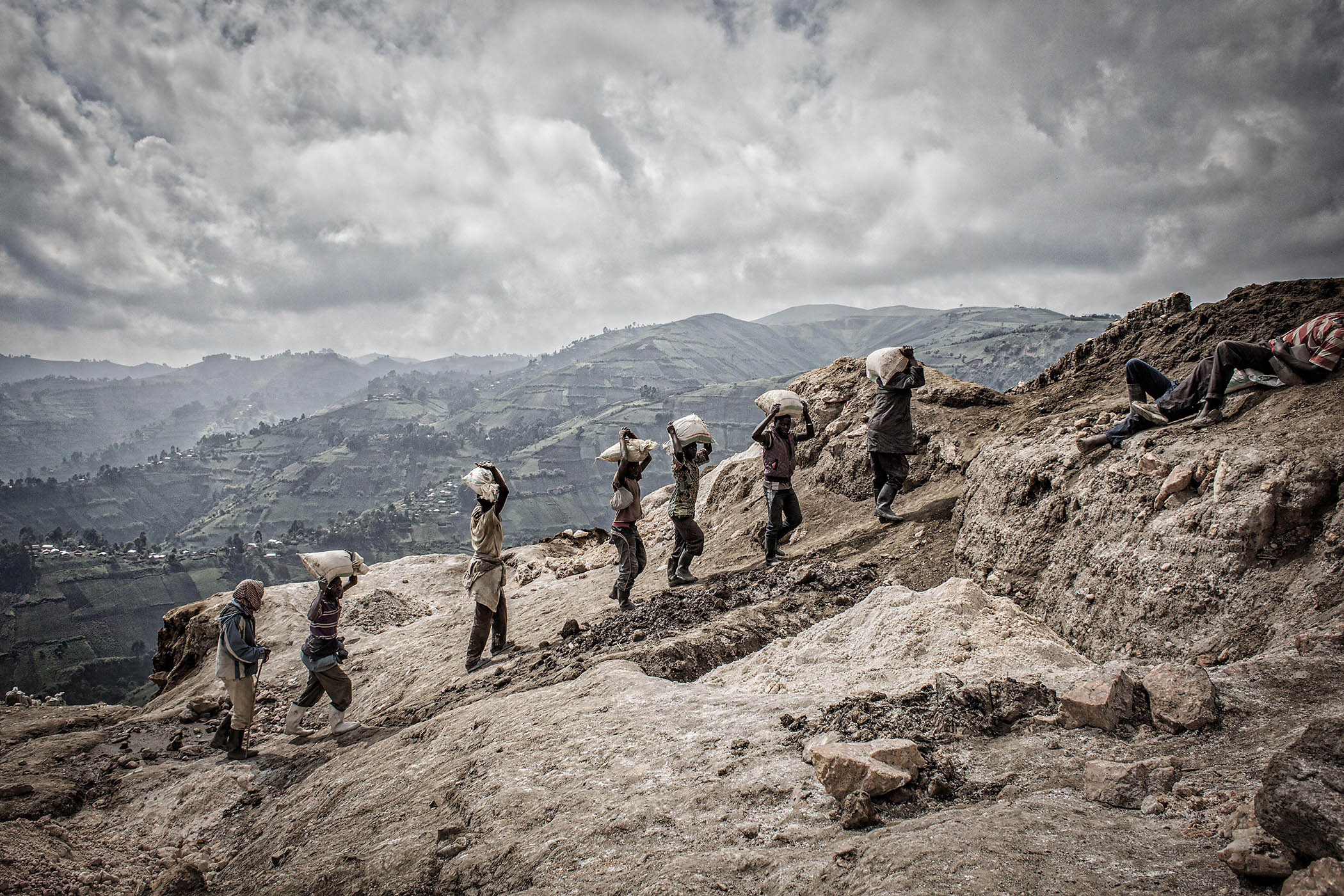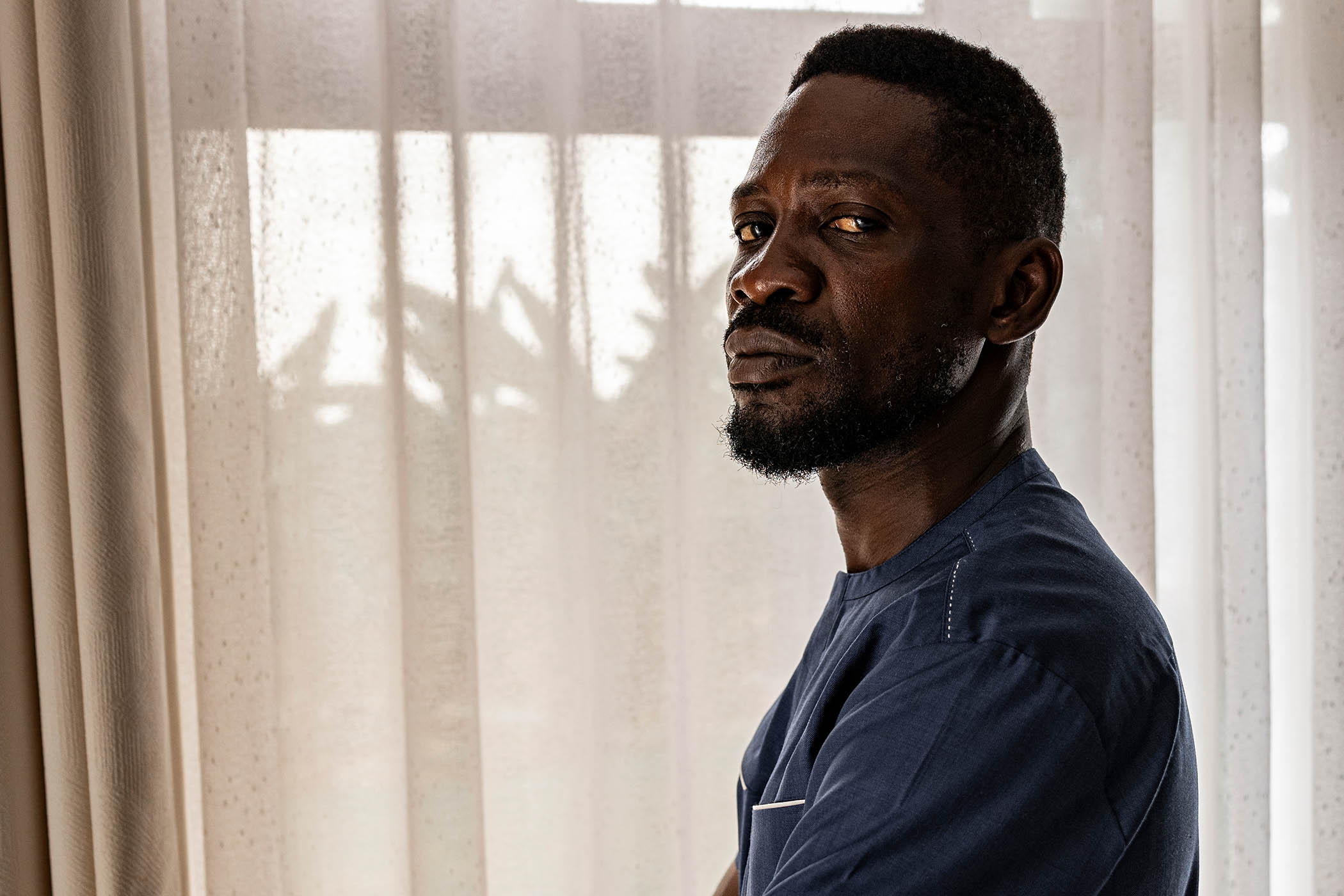Blank screens greeted viewers tuning into three of Kenya’s biggest TV stations on Wednesday. In cities across the country, thousands of young Kenyans had poured on to the streets to denounce police brutality and call for the prime minister’s resignation. The police responded with violence, teargas and water cannon – at least 16 people were killed, with hundreds more injured.
When the broadcasters refused to obey a directive not to cover the unrest, they were taken off air. If the idea was to stop Kenyans viewing images of police brutality, it failed. Footage of officers clad in riot gear whipping demonstrators flooded social media.
Countries across Africa are witnessing similar upheaval. Last year Senegalese held rallies against a decision to postpone an election, Mozambicans took to the streets to denounce a poll widely seen as rigged and Ghanaians protested against the removal of their chief justice. This week demonstrators rallied in Togo against President Faure Gnassingbe, who has ruled for two decades.
Africa’s growing, well-educated and digitally-savvy Gen Z is at the forefront, voicing dissatisfaction with entrenched, mostly old ruling elites. The movements are largely leaderless, fuelled by TikTok, X and Facebook.
“There’s no person behind it, there’s no structure that we answer to,” said Bridget Muthio, a 23-year-old law student in Nairobi. “It’s just people brought together by a common pain, people who want better for each other and want to fight together.”
Urban protests are hardly new. Ethiopian students helped overthrow Emperor Haile Selassie in 1974, before their revolution was hijacked by communist military officers. Two years later, black South African school children inspired a series of demonstrations against apartheid. More recently, in 2019, Sudanese threw off the oppressive rule of President Omar al-Bashir. Their uprising was also derailed by a coup, sparking a devastating war.
What has changed is the frequency, as growing numbers of young people organise online. Last year saw 11,349 protests across Africa, compared with just 317 in 2004, according to Acled (Armed Conflict Location and Event Data).
Unemployment is a major grievance. With a median age of 19, Africa is by far the world’s youngest continent. Roughly 450 million young Africans are expected to enter the workforce in the next decade, a rise of 70%.
But there are not enough jobs to go around. About 75% of young Africans say it’s difficult to find a job, seeing corruption as the biggest barrier. In South Africa, where 60% of 15-24 year-olds can’t find work, a million people recently applied for 10,000 police recruit positions. Many have no option but to toil in the informal economy as labourers, hawkers or taxi drivers.
“This is about a lack of opportunity. There’s a wave of young people emerging with higher education, and they find it almost impossible to get jobs,” says Edward Paice, author of Youthquake, a book on African demography. “There is a mounting sense of not just disappointment, but anger.”
Newsletters
Choose the newsletters you want to receive
View more
For information about how The Observer protects your data, read our Privacy Policy
Added to this are the soaring cost of living, crumbling public services and poor governance. Last week’s protests in Kenya were arranged to commemorate the deaths of 60 people at similar demonstrations a year ago. Those protests had been sparked by proposed tax hikes that would have raised the prices of bread, telephone bills and nappies. While they were being debated, an MP sparked a social media storm by flaunting a range of luxury cars on TikTok. Users pointed out they are worth more than his official salary.
‘It’s people brought together by a common pain, who want better... We are fighting for a system that works for us’
‘It’s people brought together by a common pain, who want better... We are fighting for a system that works for us’
Kipchumba Murkomen, interior secretary
Kenya’s interior secretary, Kipchumba Murkomen, called the protesters “anarchists” and “terrorists” bent on a coup. Muthio rejects this. “We’re fighting for a system that works for us, as the young people of Kenya,” she says. “That’s what this is about.”
It’s a sense of grievance shared by young people across the continent.
“Governments are not listening to their young people,” says Wilker Dias, the 29-year-old director of Plataforma Decide, a civil society in Mozambique, where the Frelimo liberation movement has ruled since independence in 1975. “They just make the decisions without any consultation, so young people are going into the streets – it’s the only way to get their voices heard.”
In some countries, change is afoot. Last year Senegal elected a 45-year-old opposition candidate, Bassirou Diomaye Faye, who spent most of his campaign in prison. But elsewhere military officers have exploited dissatisfaction with incumbents to mount coups, such as in Gabon and Burkina Faso.
Paice says no African government has come up with a solution to absorb the growing number of young people into their economies. As a result, he predicts the spread of protest to grow.
“This is going to be one of the most salient developments in most African countries in the next two to three decades, and it is going to challenge governments to the core,” Paice says. “If I can permit myself a little bit of optimism, one is going to see the emergence of new political dispensations.”
Photograph by Luis Tato/AFP via Getty Images



